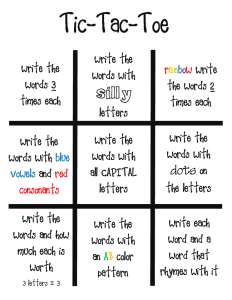At the risk of sounding like Captain Obvious, I must begin by acknowledging that the topic of homework is a hot-button one. Several times within the past few months, I have been part of a Twitter conversation about homework that has effectively blown up my digital devices with each resuscitation. “Homework” as a concept makes folks’ blood pressure rise, causes their cheeks to turn pink; it is, in all essence, the kryptonite of educators, students, and parents alike.

Alfie Kohn, a writer and speaker who is widely known for his books and essays about education, parenting, and behavior, has written extensively on the research surrounding homework and its effects on children’s familial relationships, interest in learning, and overall well-being. (Spoiler alert: homework is, essentially, the Debbie Downer of childhood.) Kristine Mraz, educator extraordinaire and co-author of Smarter Charts (with Marjorie Martinelli) and A Mindset for Learning (with Christine Hertz), has just written a blog post on what the research says about homework for the younger set, which you’ll definitely want to check out here. I’m going to save the technical research-y stuff for those two smarty pants–along with a host of others who’ve written about homework through that particular angle–and instead appeal to your sense of humanity by outlining four stories that assigning homework sends to students, no matter what their age, about school, about learning, and about life in general.
STORY #1: Six Hours of Doing Everything You’re Told to Do Is Insufficient.

I’m being generous here, considering that the average school day lasts just over six and a half hours, but I’m trying to account for lunches, transitions, and–for those schools that have not banned or significantly reduced it–recess. (Oh, wait–students have rules imposed on them during those times, too.) The point is, children spend an inordinate number of their waking hours being coerced, cajoled, and/or controlled into doing what we “grown-ups” want them to do. When we regularly assign homework, we are in effect telling them, “Hold up, my little minions! I’m not done controlling your actions for the day.” But our students are not our minions, despite what our traditional public school system, proponents of the Common Core State Standards, and PBIS would have us believe. Even in the most progressive of schools, students are consistently subject to someone else’s timeline, someone else’s materials, and/or someone else’s ideas about what concepts and skills are worth learning. A reasonable measure of this is good, of course, even (perhaps) useful; but how do we ever expect children to develop healthy habits and strong minds when they are being told what to do with their time the majority of the time? Which leads me to…
STORY #2: Your Time Outside of School Is Not Really Your Time.
It won’t surprise people to know that many children and adolescents lead lives that are woefully overscheduled, as has been argued here, here, and here. (To be fair, some, like the Wall Street Journal, have argued that the idea of the “overscheduled child” is largely a myth.) Homework, its proponents claim, offers children the chance to practice good work habits, time management skills, and responsibility. Some have even gone so far as to imply that children who are not assigned homework on a regular basis are more likely to be “at risk”– getting into trouble, staring at screens, and courting obesity by spending their unstructured hours eating junk food.
While there may be a sliver of truth (or at least of possibility) in such a notion, homework is not the answer. Even if we accept the incredibly weak correlation between unstructured time and behaviors that are linked to all of society’s ills, we cannot overlook the fact that this is only the case when unstructured = unsupervised, and assigning unsupervised (read: unsupported) children thirty long division problems a night to complete is not, I am sorry to say, going to prevent our civilization from self-destructing.
In reality, children of all ages are offered precious little time, both in and out of school, to make their own informed decisions, set their own course, and stew in their own thoughts. As someone who works with children in grades K-6, I can attest to the fact that these thoughts and ideas, when given the time to fully materialize, are often surprising, amusing, and incredibly enlightening. (Think about how many of our own brilliant ideas are born when we allow our minds to wander during a long shower.) Instead of using homework to hold hostage students’ “out-of-school” time, let’s instead send children the message, by not assigning them homework, that we value what they want to do, what they want to know more about, and what they think about the world. And let’s find ways to support this.
STORY #3: School Is More Important Than Other Pursuits/Interests/Activities.
In theory, I love school. I am a teacher, after all. What I really love, though, is learning, exploring ideas, and expanding the limits of my heart, my body, and my mind. As much as I think we can improve how schools support this kind of “work,” I’m not entirely down on school. But school is not the be all, end all of our lives. In fact, school sometimes–and by “sometimes” I mean often– acts as a barrier to living a full, well-balanced life. One of its most ubiquitous barriers, of course, is the regular assigning of homework.
Sure, there are students who can successfully balance homework along with such passions and interests as engineering (e.g., playing with Legos), visual storytelling (e.g., curating one’s Instagram feed), and observing biological phenomena (e.g., watching worms crawl along the sidewalk after a rainstorm). My own daughter, whose passions include making a mean béchamel sauce and training as a competitive gymnast, is a living example of this. But there is nothing that homework can offer her, or any other student, that cannot be offered by something else. Assigning homework–and by homework I do not mean “finish up and/or explore further what we did in class,” but rather [see story #4]–places a bloated value on “school learning” that is at best, misguided, and at worst, damaging. It implies that the kind of learning that is most valued is that which is done within the confines of “school” as a concept, but which, ironically, is to be completed outside of official school hours–when other kinds of learning, which by implication are less valued, are most likely to occur.
STORY #4: This Assignment Is Worth Doing.
This would be the most entertaining “story” to dissect if it weren’t also the most appalling. Homework assignments, especially if they’re mandated (and almost all homework assignments are), through their very existence send children and their families the message that they are useful, valuable, and worth spending one’s time on. But when students are assigned reading logs for the purpose of being held accountable for reading outside of school, or cutesy spelling grids to complete like this one,*

their usefulness ought to be critically examined. Some questions to ask might be, What is the purpose of this assignment? Does the assignment meet its intended purpose? Is it necessary that students complete this outside of school? Have they had a hand in designing the assignment? If not, why not? and so on. Or, in the case of the “Candy Math” homework that my oldest daughter was assigned to complete one evening after trick-or-treating (due the following morning), you might simply ask, as my husband and I did, “What the actual f***?”
I’m not so naive as to believe that everyone will agree with the four stories I’ve laid out here. However, as much as teachers try to do right by their students by mandating homework, in reality they are not doing anything that cannot be done better through a host of other means–other means that are, on the whole, more engaging, more meaningful, and more respectful of the full and varied lives that children and their families live.

Thank you for this post. I hope real change is in the air and is supported by upper management, because without the OK from the principal/superintendent, teachers are “required” to comply with the homework policy of their school. Teachers teach during school hours; parents raise their kids all the other hours of the day and night. When “go do your homework” is no longer a time filler option, parents will figure out alternatives. Let’s give parents some credit for knowing what’s good for their family.
Sent from Yahoo Mail on Android
LikeLike
Barbara, your point about what is “required” of some teachers is so true. I think one of our biggest obstacles in reducing the amount of mandated homework that students are assigned is getting administrators to understand 1) how few homework assignments have any substantial value, and 2) how important it is to put out efforts into helping families support children’s learning through play, through talk, and through everyday experiences like cooking, exploring the natural world, etc. Thank you for reading and commenting. I miss your insights and your humor!
LikeLike
Shawna,
Great post! I hope that many teachers think about this issue over the break. Homework is such an issue . . . for all the reasons listed here and on Kristine’s blog.
❤
LikeLike
Thank you for sharing Kristine’s and my post, Fran! Appreciate your support!
LikeLike
Story 3! Sing it. It’s almost as though there is the assumption/expectation from all angles that homework fills time appropriately. And you’re right- that absolutely sends the message that kids are not able to have a wonder or question or thought that is their own outside of school hours.
On the teacher side, I used to try to combat this by differentiating the crap out of homework. I shudder to wonder how much time I wasted finding multiple “personalized” homework assignments and then trying to follow up with these each day…only to do it again and again….
I have really enjoyed exploring the ideas of Dan Feigelson in his book Reading Projects Reimagined. I love the idea of guiding students to dig in the their reading and writing by owning something they self-discover and then become motivated to explore and experiment – they own it and if they choose to continue that work after school great and if not, so be it.
In my experience the majority of parents were on board with minimal to no hw. The ones that weren’t were typically because their other child (or neighbors child…” had a “different experience” and they were afraid they wouldn’t be prepared for the next grade. I can’t stand the idea that we need to always be getting kids ready for the next thing. Society could use a few more people who live in the moment.
Thanks for writing this!
LikeLike
Jaclyn, I too, spent gobs and gobs of time differentiating my homework assignments, thinking I was doing the right thing! I definitely have to check out Dan’s book–it’s been on my TBR pile for months. Thank you for reading and for commenting so thoughtfully!
LikeLike
Homework has value, especially for building out-of-class study habits (an important soft skill). University students often drop out because they simply haven’t learned to shut out distractions when no one is watching over them. While it feels good to not assign homework, I would also consider the long-term impact of such a policy on children. In short, I don’t think banning homework is a good idea.
LikeLike
Hi John! I agree that study habits are an important skill, but I also think that the skills wrapped up in what we call “study habits”–time management, work management, perseverance, etc.–can be taught using other, more meaningful means. I think that, instead, our efforts should move toward helping families support children’s learning through play/exploration, through talk, etc. Perhaps I should elaborate on this in a future post. Thank you for reading!
LikeLike
I’ve been thinking about this comment a lot, John- trying to gather my thoughts before we discussed it more. I think I might agree that the idea of “banning” it could be too strong, though the research is pretty strong for the younger graders.
But I’m wondering- university students are from the culture of homework. So if it isn’t helping them all succeed…then why? I wonder a lot about the idea that in college, you have to design your time outside of class. Heck, you have to design your time period! (as in choose to attend class or not, for starters) Could it be that time is designed for students all the way up to college so when they have this new exciting power they don’t know what to do?
LikeLike
Yes, Jaclyn! Totally agree with this reply.
Shawna, would love to read a post elaborating on how to gently guide our children in designing their own time after class. I fear mine have not developed this ability from being so over-scheduled (my own fault) and controlled with homework that they go straight for the TV or phone when they have free time. Without them, they sprawl out in emotional agony from the BOREDOM!!!! 😂
LikeLike
Story #5: Planning, tracking, grading, nagging, and hearing about homework is as much of a pain for teachers as it is for parents. Homework is complicated! Here are a few more conflicting things to consider:
*Some students really do benefit from the extra practice, especially things like math facts.
*Some students actually beg for homework because they are so bored at home.
*Some parents ask teachers for extra work/homework (think tiger moms) because it is their cultural expectation and the parents believe this is the correct way to push their children academically. To them, a teacher who does not assign homework is lazy.
*Children suffering from the effects of poverty and disfunctional families are less likely to complete homework and more likely to be punished because of it. Homework issues put these children at an educational disadvantage.
*Parents who do not speak or read English are often unable to support their child’s homework requirements. Homework issues put these children at an educational disadvantage.
LikeLike
Yes, Catherine–you are so right about Story #5! And your other points are absolutely ones that should also be considered. The equity issue is one that particularly concerns me…not just in regard to homework, but in regard to field trips, expectations, and a whole host of other “school-based” requirements. Thank you for your thoughtful response.
LikeLike
I thank you for this frank review of the use of homework. One point I would like to highlight is the tension and stress of homework on a child who has no control over the time between end of school day and bedtime. The assumption that this stretch of time includes a portion set aside for homework duty by all the adults orchestrating the use of this child’s or family’s space of time before bed is a poor one at best.
LikeLike
Here is a song I wrote on the topic back in 5th grade.https://soundcloud.com/barrylane55/homework-in-the-night
LikeLike